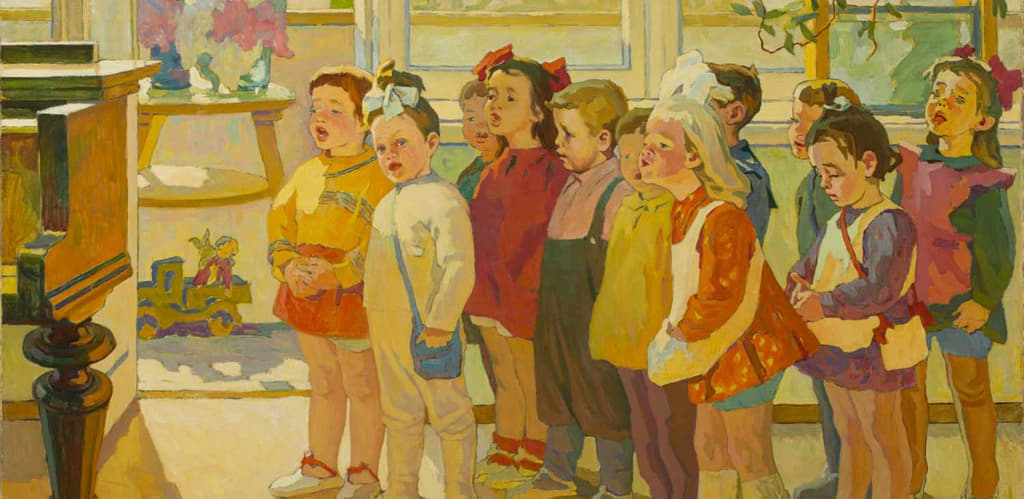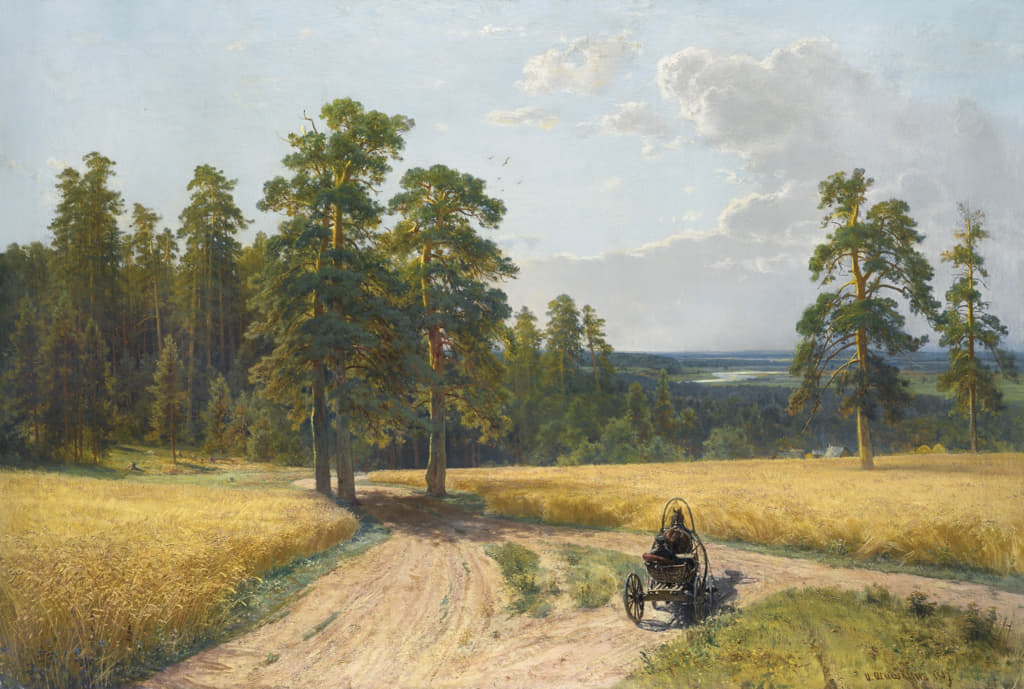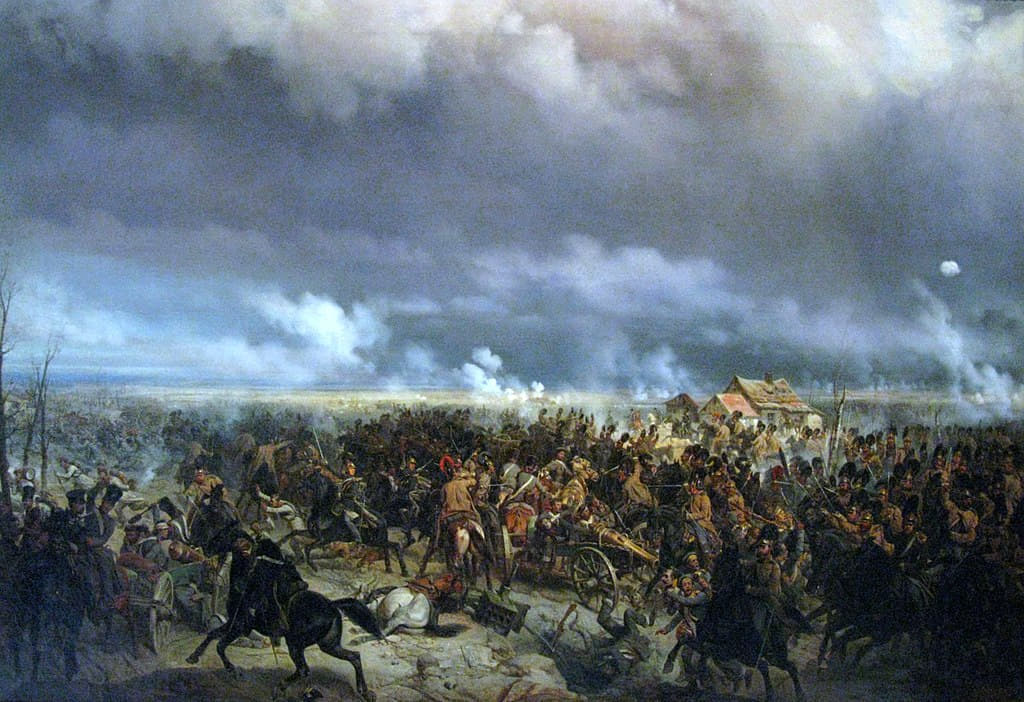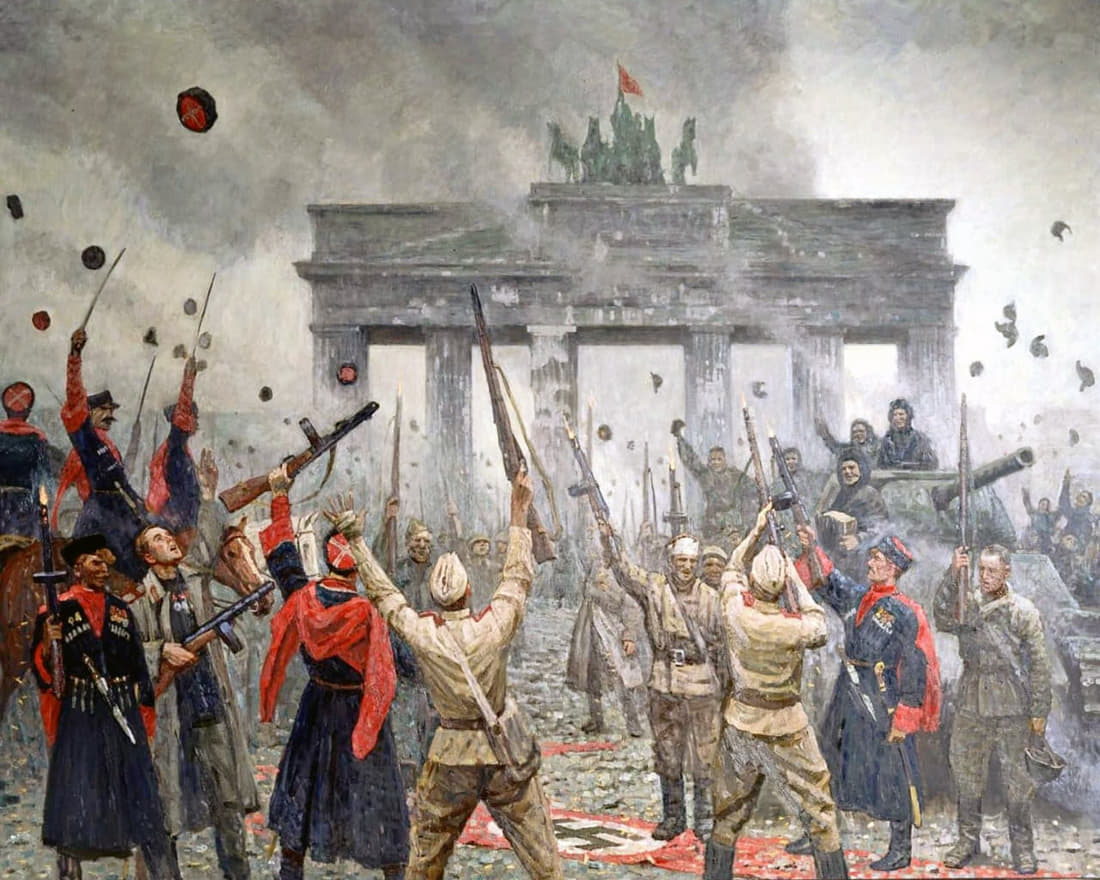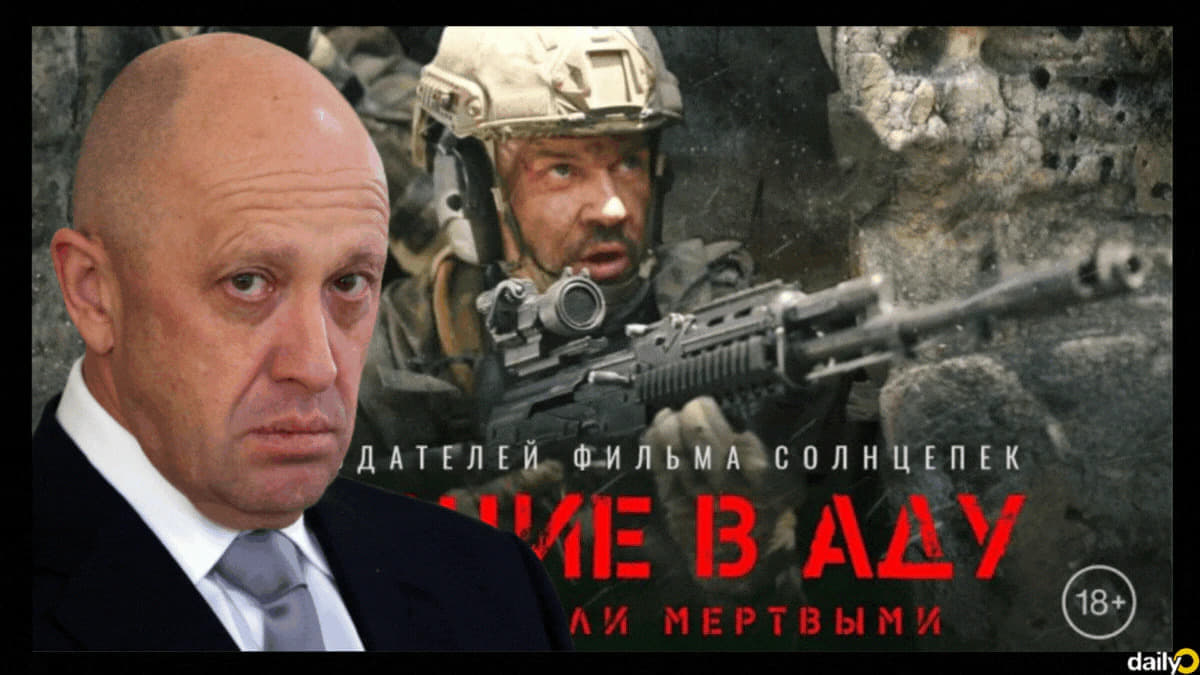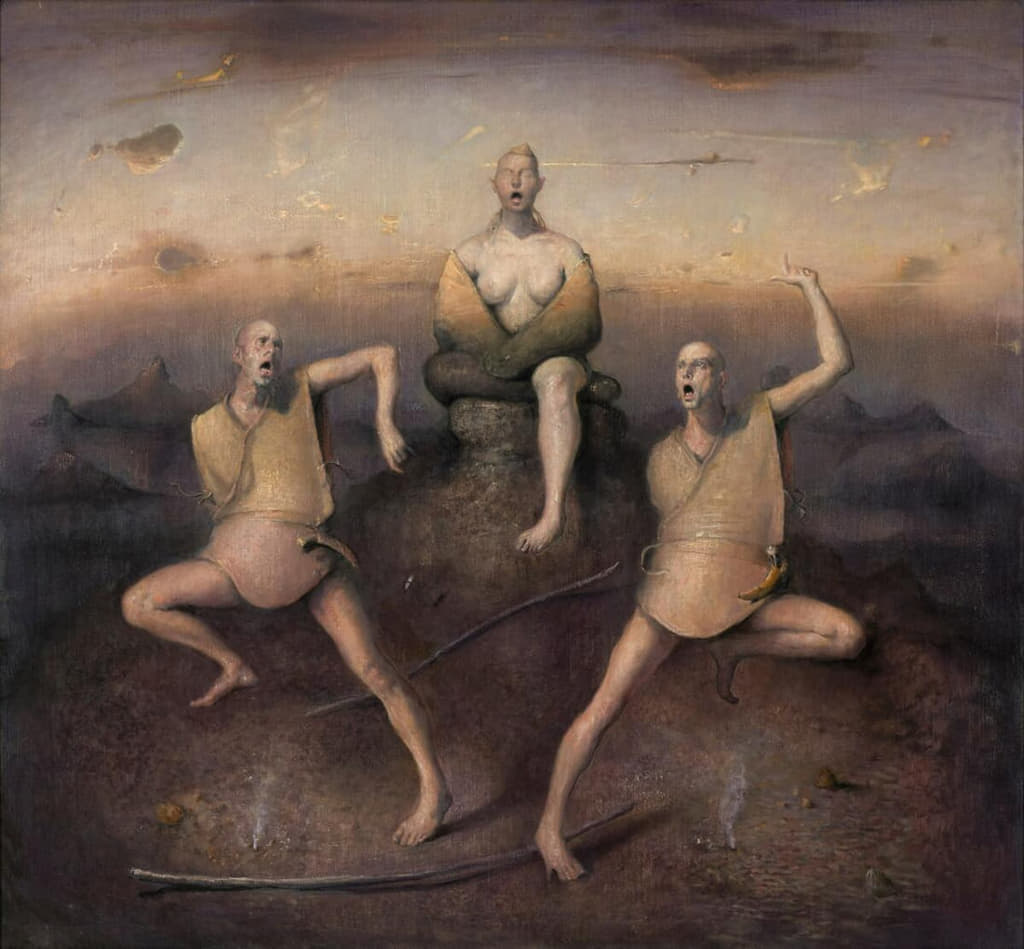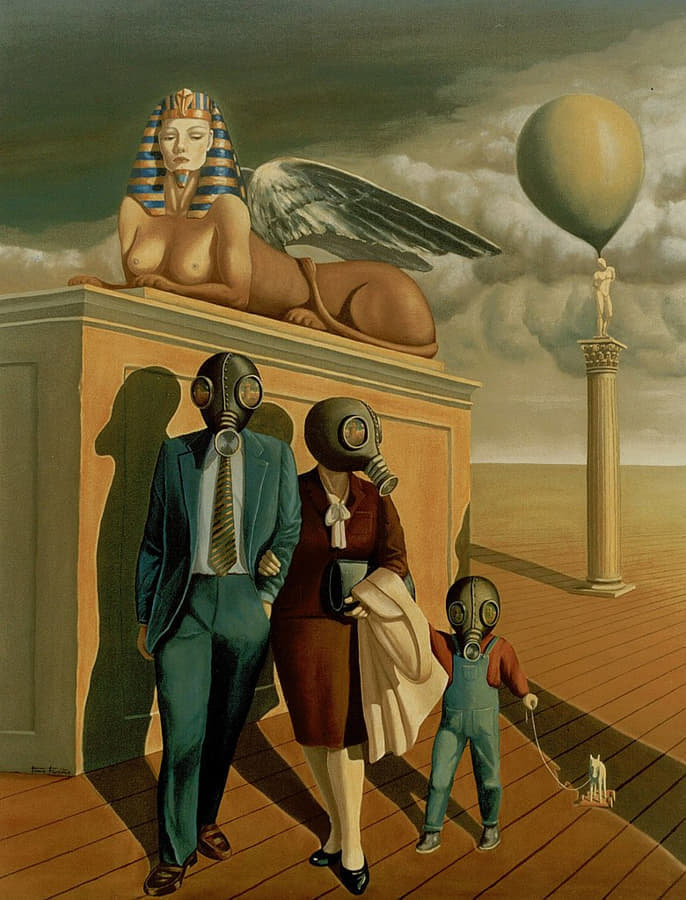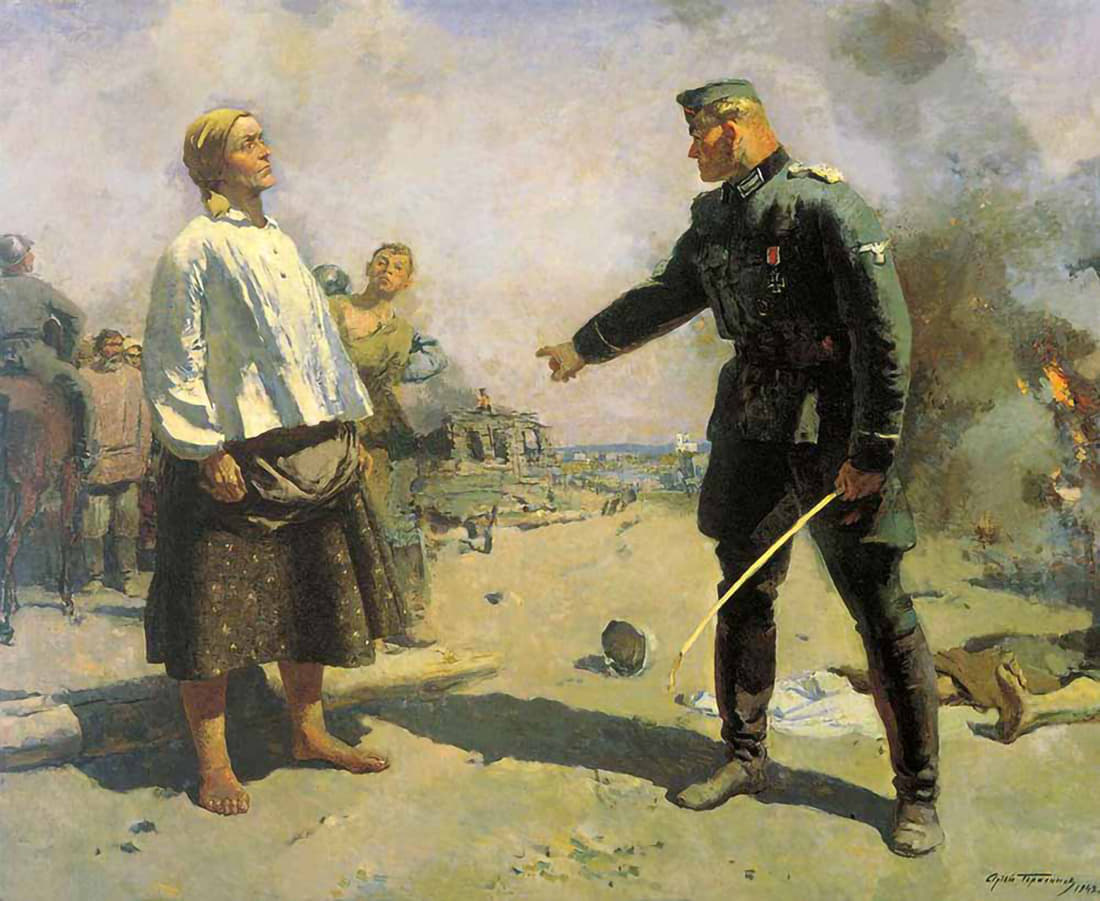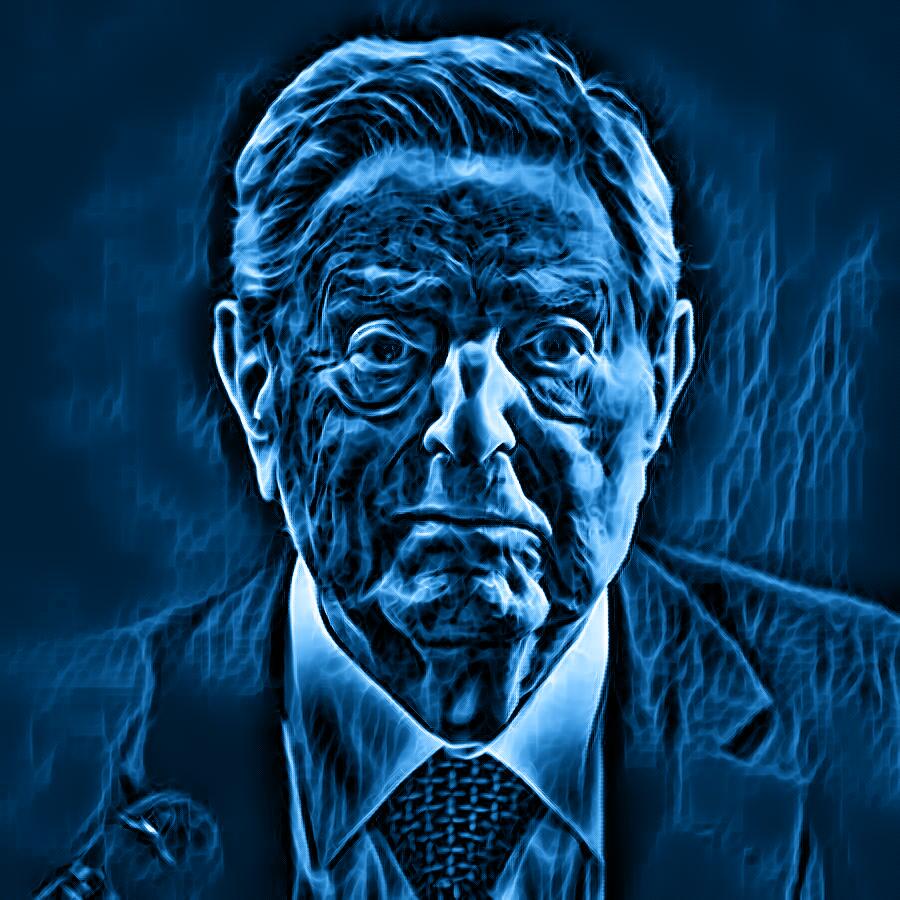From SMO to Full-Fledged War
A year has passed since the start of the Special Military Operation (SMO). If it began as a Special Military Operation, it is clear today that Russia has found itself in a full-fledged and difficult war. Not only with Ukraine—as a regime and not with the people (hence the demand for political denazification put forward initially), but also with the “collective West;” that is, in fact, with the NATO bloc (except for the special position of Turkey and Hungary, seeking to remain neutral in the conflict—the remaining NATO countries take part in the war one way or another on the side of Ukraine).
This year of war has shattered many illusions that all sides of the conflict had.
Where Did the West Go Wrong?
The West, hoping for the effectiveness of an avalanche of sanctions against Russia and its almost complete cut-off from the part of the world economy, politics, and diplomacy controlled by the United States and its allies, did not succeed. The Russian economy has held its own. There have been no internal protests, and Putin’s position has not only not wavered, but has only grown stronger. It has not been possible to force Russia to stop conducting military operations, attacking Ukraine’s military-technical infrastructure, or withdrawing decisions on the annexation of new entities. There was no uprising of the oligarchs, whose assets had been seized in the West, either. Russia survived, even though the West seriously believed that it would fall.
From the very beginning of the conflict, Russia, realizing that relations with the West were crumbling, made a sharp turn toward non-Western countries—especially China, Iran, the Islamic countries, but also India, Latin America and Africa—clearly and contrastingly declaring its determination to build a multipolar world. In part, Russia, strengthening its sovereignty, has done this before, but with hesitation; not consistently, constantly returning to attempts to integrate into the global West. Now this illusion has finally dissipated, and Moscow simply has no choice but to plunge headlong into building a multipolar world order. This has already yielded certain results; but here we are at the very beginning of the road.
Russia’s Plans have Changed Significantly
However, things did not go as expected for Russia itself. Apparently, the plan was to deal a swift and fatal blow to Ukraine, to rush to besiege Kiev and force the Zelensky regime to capitulate, without waiting for Ukraine to attack Donbass and then Crimea, which was being prepared by the West under the guise of formal agreement with the Minsk agreements and with the active support of globalist elites—Soros, Nuland, Biden himself and his cabinet. Then it was supposed to bring a moderate politician (such as Medvedchuk) to power and begin to restore relations with the West (as after the reunification with Crimea). No significant economic, political, or social reforms were planned. Everything was supposed to remain as before.
But things did not go that way. After the first real successes, certain miscalculations in strategic planning of the entire operation became apparent. The military, elite and society were not ready for a serious confrontation; neither with the Ukrainian regime, nor with the collective West. The offensive stalled, encountering desperate and fierce resistance from an adversary with unprecedented support from the NATO military machine. The Kremlin probably did not take into account either the psychological readiness of the Ukrainian Nazis to fight to the last Ukrainian, or the scale of Western military aid.
In addition, we did not take into account the effects of eight years of intensive propaganda, which forcibly inculcated Russophobia and extreme hysterical nationalism day in and day out in the entire Ukrainian society. While in 2014 the overwhelming majority of eastern Ukraine (Novorossiya) and half of Central Ukraine were positively disposed toward Russia, although not as radically “for” as residents of Crimea and Donbass, in 2022 this balance has changed—the level of hatred toward Russians has significantly increased, and pro-Russian sympathies have been violently suppressed—often through direct repression, violence, torture and beatings. In any case, Moscow’s active supporters in Ukraine became passive and intimidated, while those who wavered sided with Ukrainian neo-Nazism, encouraged in every possible way by the West (for purely pragmatic and geopolitical purposes).
Only a year later, did Moscow finally realize that this was not an SMO, but a full-fledged war.
Ukraine was Ready
Ukraine was more prepared than anyone else for Russia’s actions, which it began to talk about in 2014, when Moscow had not even remote intentions of expanding the conflict, and reunification with Crimea seemed quite sufficient. If the Kiev regime was surprised by anything, it was precisely Russia’s military failures that followed its initial successes. This greatly boosted the morale of Ukrainian society, already permeated by rampant Russophobia and exalted nationalism. At some point, Ukraine decided to fight Russia in earnest to the very end. Kiev, given the enormous military aid from the West, believed in the possibility of victory, and this became a very significant factor for the Ukrainian psychology.
The only thing that took the Kiev regime by surprise was a preemptive strike by Moscow, the readiness for which many considered a bluff. Kiev planned to begin military action in the Donbass as it prepared, confident that Moscow would not attack first. But the Kiev regime had also prepared thoroughly to repel a possible strike, which would have followed in any case (no one had any illusions about that). For eight years, it had been working uninterruptedly to strengthen several lines of defense in the Donbass, where the main battles were expected to take place. NATO instructors were preparing well-coordinated and combat-ready units, saturating them with the latest technical developments. The West did not hesitate to welcome the formation of punitive neo-Nazi groups engaged in direct mass terror against civilians in the Donbass. And it was there that Russia’s advance was most difficult. Ukraine was ready for war precisely because it wanted to start it any day now.
Moscow, on the other hand, kept everything a secret until the very last, which made society not quite ready for what followed on February 24, 2022.
Russia’s Liberal Elite has been Held Hostage by the SMO
But the biggest surprise was the beginning of the SMO for the Russian liberal pro-Western elite. This elite was individually and almost institutionally deeply integrated into the Western world. Most kept their savings (sometimes gigantic) in the West and actively participated in securities transactions and stock trading. The SMO actually put this elite at risk of total ruin. And in Russia itself, this customary practice has been perceived by many as a betrayal of national interests. Therefore, Russian liberals until the last moment did not believe that the SMO would begin; and when it happened, they began to count the days when it would end. Having turned into a long, protracted war, with an uncertain outcome, the SMO was a disaster for the entire liberal segment of the ruling class.
So far, some in the elite are making desperate attempts to stop the war (and on any terms). But neither Putin, nor the masses, nor Kiev, nor even the West, which has noticed the weakness of Russia, somewhat bogged down in the conflict, and will go all the way in its supposed destabilization.
Fluctuating Allies and Russian Loneliness
I think Russia’s friends were also partly disappointed by the first year of the SMO. Many probably thought its military capabilities were so substantial and well-tuned that the conflict with Ukraine should have been resolved relatively easily. For many, the transition to a multipolar world seemed already irreversible and natural, and the problems Russia faced along the way brought everyone back to a more problematic and bloody scenario.
It turned out that Western liberal elites were ready to fight seriously and desperately to preserve their unipolar hegemony—up to the likelihood of a full-scale war with direct NATO participation and even a full-fledged nuclear conflict. China, India, Turkey and other Islamic countries, as well as African and Latin American states, were hardly ready for such a turnaround. It is one thing to get closer to a peaceful Russia, quietly strengthening its sovereignty and building non-Western (but also not anti-Western!) regional and interregional structures. Entering into a frontal, head-on conflict with the West is another matter. Therefore, with the tacit support of supporters of multipolarity (and above all the friendly policies of China, the solidarity of Iran, and the neutrality of India and Turkey), Russia was essentially left alone in this war with the West.
All this became obvious a year after the start of the SMO.
The First Phase: A Swift Victorious Beginning
The first year of the war had several phases. In each of them, many things changed in Russia, in Ukraine, and in the world community.
The first abrupt phase of Russian successes, during which Russian troops from the north passed Sumy and Chernigov and reached Kiev, was met with a flurry of fury in the West. Russia proved its seriousness in liberating the Donbass, and with a swift rush from Crimea established control over two more regions, Kherson and Zaporozhye, as well as parts of the Kharkov region. Mariupol, a strategically important city in the DNR, was taken with difficulty. Overall, Russia, when it acted lightning fast and unexpectedly, achieved serious successes at the beginning of the operation. However, we do not fully know what mistakes were made at this stage that led to the subsequent failures. This question still needs to be studied. But for certain, they were made.
Overall, this phase lasted for the first two months of the SMO. Russia was expanding its presence, coping with sanctions and unprecedented pressure, establishing itself in the regions, and establishing a military-civilian administration.
With demonstrable and tangible successes, Moscow was ready for negotiations that would consolidate military gains with political ones. Kiev also reluctantly agreed to negotiations.
The Second Phase: The Logical Failure of the Negotiations
But then the second phase began. It was the military and strategic miscalculations in the planning of the operation, the inaccuracy of the forecasts and the failure of unfulfilled expectations, both on the part of the local population, and the readiness of some Ukrainian oligarchs to support Russia under certain conditions.
The offensive stalled; and in some ways, Russia was forced to retreat from its positions. The military leadership tried to achieve some results through negotiations in Istanbul, but this did not bring any results.
The negotiations lost their meaning because Kiev felt that it could resolve the conflict militarily in its favor.
From then on, the West, having prepared public opinion with the furious Russophobia of the first phase, began to supply Ukraine with all forms of lethal weapons on an unprecedented scale. The situation began to deteriorate little by little.
The Third Phase: Stalemate
In the summer of 2022, the situation began to stalemate, although Russia had some success in some areas. By the end of May, Mariupol had been taken.
The third phase lasted until August. During this period, the contradiction between the understanding of the SMO as a rapid and fast operation, which had to pass into the political phase, and the need to fight against a well-armed enemy, which received logistical, intelligence, technological, communication and political support from the entire West, became fully evident. And along a front of enormous length. Moscow was still trying to continue with the original scenario, not wanting to disturb society as a whole and not addressing the people directly. This created a contradiction in the sentiments of the front and the home front, and led to a dissonance in the military command. The Russian leadership did not want to let the war in, postponing in every way the imperative of partial mobilization, which had become overdue by that time.
During this period, Kiev and the West in general turned to terrorist tactics—killing civilians in Russia itself, blowing up the Crimean bridge, and then the Nord Stream gas pipelines.
The Fourth Phase: The Kiev Regime Counterattacks
Thus, we entered phase four, which was marked by a counterattack by the AFU in the Kharkov region, already partially under Russian control at the beginning of the SMO. The Ukrainians’ attacks also intensified in other parts of the front, and the mass delivery of HIMERS units and the supply of the closed satellite communications system Starlink to Ukrainian troops, in combination with a number of other military and technical means, created serious problems for the Russian army, for which it was not prepared at the first stage. The retreat in the Kharkov region, the loss of Kupyansk and even Krasny Liman, a town in the DNR, was the result of “war by half” (as Vladlen Tatarsky accurately put it). Attacks on “old” territories also increased, with regular shelling of Belgorod and the Kursk region. The enemy also used drones to hit some targets deep in Russian territory.
It was no longer possible to fight or not to fight at the same time; or, in other words, to keep society at a distance from what was happening in the new territories.
It was at this point that the SMO turned into a full-fledged war. Or, to be more precise, this fait accompli was finally realized in Russian upper circles.
The Fifth Phase: The Decisive Turn
These failures were followed by a fifth phase, which, although much delayed, has changed the course of things. Putin took the following steps: announcing partial mobilization, reshuffling the military leadership, establishing the Coordinating Council on Special Operations, putting the military industry on a tightened schedule, tightening measures for disrupting state defense orders, and so on.
The culmination of this phase was the referendum on joining Russia in four regions—the DNR, LNR, Kherson and Zaporozhye; Putin’s decision to accept them into Russia; and his program speech on this occasion on September 30, where he stated for the first time with all the candor of Russia’s opposition to Western liberal hegemony, the complete and irreversible determination to build a multipolar world and the beginning of the acute phase of the war of civilizations, where the modern civilization of the West was declared “satanic.” In his later Valdai speech, the President reiterated and developed the main theses.
Although Russia was already forced to surrender Kherson after that, retreating further, the attacks of the AFU were stopped, the defense of the controlled borders was strengthened and the war entered a new phase.
As the next step of escalation, Russia began regular destruction of Ukraine’s military-technical and sometimes energy infrastructure with missile-bombing strikes.
The purification of society from within also began: traitors and collaborators of the enemy left Russia, patriots ceased to be a marginal group, with their positions of selfless devotion to the homeland, becoming—at least outwardly—the ethical mainstream. Where once liberals used to compile systematic denunciations against anyone who showed any sign of left-wing or conservative views critical of liberals, the West, etc., now, by contrast, anyone with liberal sentiments was automatically suspected of being at least a foreign agent, or even a traitor, saboteur, and terrorist collaborator. Public concerts and speeches by outspoken opponents of the SMO were banned. Russia began the road to its ideological transformation.
The Sixth Phase: Equilibrium Again
Gradually the front stabilized and a new stalemate emerged again. None of the adversaries could now turn the tide. Russia reinforced itself with a mobilized reserve. Moscow supported the volunteers and especially the Wagner PMC, which managed to achieve significant success in turning the tide in the local theaters of war. Many necessary measures to supply the army and the necessary equipment were taken. The volunteer movement was in full swing.
The war entered Russian society.
This sixth phase lasts to the present time. It is characterized by a relative balance of power. Both sides cannot achieve decisive and breakthrough successes in such a state. But Moscow, Kiev and Washington are ready to continue the confrontation for as long as it takes.
In other words, the question of how soon the conflict in Ukraine will end has lost its meaning and its relevance. We are only now really at war. We have realized this fact. It is a kind of being-in-war. It is a difficult, tragic, and painful existence, to which Russian society had long ago become unaccustomed, and most of us did not even really know war.
The Use of Nuclear Weapons: The Latest Argument
The seriousness of Russia’s confrontation with the West has raised new questions about the likelihood that the conflict will escalate to nuclear weapons. The use of Tactical Nuclear Weapons (TNWs) and Strategic Nuclear Weapons (SNWs) was discussed at all levels, from governments to the media. Since we were already talking about a full-fledged war between Russia and the West, this prospect ceased to be purely theoretical and became an argument that is increasingly mentioned by various parties to the conflict.
A few comments should be made in this regard.
Despite the fact that the issue of the actual state of affairs in nuclear technology is deeply classified, and no one can be completely sure how things really are in this area, it is believed (and probably not without reason) that Russian nuclear capabilities, as well as the means of using them through missiles, submarines and other means, are enough to destroy the United States and NATO countries. At the moment, NATO does not have sufficient means to protect itself from a potential Russian nuclear strike. Therefore, in case of an emergency Russia can use this last argument.
Putin has been quite clear about what he means by that—essentially, if Russia faces a direct military defeat by NATO countries and their allies, occupation and loss of sovereignty, nuclear weapons can be used by Russia.
Nuclear Sovereignty
At the same time Russia also lacks air defense equipment which would reliably protect it from a U.S. nuclear strike. Consequently, the outbreak of a full-scale nuclear conflict, no matter who strikes first, will almost certainly be a nuclear apocalypse and the destruction of humanity, and perhaps the entire planet. Nuclear weapons—especially in view of NSNWs—cannot be used effectively by only one of the parties. The second would respond, and it would be enough for humanity to burn in nuclear fire.
Obviously, the very fact of possessing nuclear weapons means that in a critical situation they can be used by sovereign rulers—that is, by the highest authorities in the United States and Russia. Hardly anyone else is capable of influencing such a decision on global suicide. That is the point of nuclear sovereignty. Putin has been quite frank about the terms of the use of nuclear weapons. Of course, Washington has its own views on this problem; but it is obvious that in response to a hypothetical strike from Russia, it too will have to respond symmetrically.
Could it come to that? I think it could.
Nuclear Red Lines
If the use of nuclear weapons almost certainly means the end of humanity, they will only be used if red lines are crossed. This time very serious ones. The West ignored the first red lines that Russia identified before the start of the SMO, convinced that Putin was bluffing. The West was convinced of this by the Russian liberal elite, which refused to believe that Putin’s intentions were serious. But these intentions should be taken very seriously.
So, for Moscow the red lines, crossing which would be fraught with the beginning of a nuclear war, are quite clear. And they sound like this: a critical defeat in the war in Ukraine with the direct and intensive involvement of the United States and NATO countries in the conflict. We were on the threshold of this in the fourth phase of the SMO, when, in fact, everyone was talking about TNWs and NSNWs. Only some successes of the Russian army, relying on conventional means of arms and warfare, defused the situation to some extent. But, of course, they did not cancel the nuclear threat completely. For Russia, the issue of nuclear confrontation will be removed from the agenda only after it achieves Victory. We will talk a little later about what the “Victory” consists of.
The United States and the West Have No Reason to Use Nuclear Weapons
For the United States and NATO, in the situation where they are, there is no motivation at all to use nuclear weapons even in the foreseeable future. They would only be used in response to a Russian nuclear attack, which would not happen without a fundamental reason (i.e., without a serious—even fatal—threat of military annihilation). Even if one imagines that Russia would take control of all of Ukraine, that would not bring the U.S. any closer to its red lines.
In a sense, the U.S. has already achieved a lot in its confrontation with Russia—it has derailed a peaceful and smooth transition to multipolarity; it has cut Russia off from the Western world and condemned it to partial isolation; it has succeeded in demonstrating a certain weakness of Russia in the military and technical sphere; it has imposed serious sanctions; it has contributed to the deterioration of Russia’s image among those who were its real or potential allies; it has updated its military and technical arsenal and has tested new technologies in real-life situations. If Russia can be beaten by other means, the collective West will be more than happy to do so. By any means, except nuclear. In other words, the position of the West is such that it has no motives to be the first to use nuclear weapons against Russia, even in the distant future. But Russia does. But here everything depends on the West. If Russia is not driven to a dead end, this can easily be avoided. Russia will only destroy humanity, if Russia itself is brought to the brink of annihilation.
Kiev Doomed
And finally, Kiev. Kiev is in a very difficult situation. Zelensky had already once asked his Western partners and patrons to launch a nuclear strike against Russia after a Ukrainian missile fell on Polish territory. What was his idea?
The fact is that Ukraine is doomed in this war from all points of view. Russia cannot lose, because its red line is its defeat. Then everyone will lose.
The collective West, even if it loses something, has already gained a lot, and there is no critical threat to the European NATO countries, let alone the United States itself, from Russia. Everything that is said in this regard is pure propaganda.
But Ukraine, in the situation in which it has found itself several times in its history, between the hammer and the anvil, between the Empire (white or red) and the West, is doomed. The Russians will not make any concessions whatsoever, and will stand until victory. A victory for Moscow would mean the complete defeat of Kiev’s pro-Western Nazi regime. And as a national sovereign state, there will be no Ukraine even in the most general approximation.
It is in this situation that Zelensky, in partial imitation of Putin, proclaims that he is ready to press the nuclear button. Since there will be no Ukraine, it is necessary to destroy humanity. In principle this is understandable; it is quite in the logic of terrorist thinking. The only thing is that Zelensky does not have a nuclear button—because he does not have any sovereignty. Asking the U.S. and NATO to commit global suicide for the sake of independence (which is nothing more than a fiction) is naive, to say the least. Weapons yes, money yes, media support yes, of course, political support yes, as much as you want. But nuclear?
The answer is too obvious to give. How can one seriously believe that Washington, no matter how fanatical the supporters of globalism, unipolarity and maintaining hegemony at all costs, will go to the destruction of humanity for the sake of “Glory to the Heroes!” Even by losing all of Ukraine, the West does not lose much. And Kiev’s Nazi regime and its dreams of world greatness will, of course, collapse.
In other words, Kiev’s red lines should not be taken seriously, though Zelensky acts like a real terrorist. He has taken a whole country hostage and threatens to destroy humanity.
The End of the War: Russia’s Goals
After a year of war in Ukraine, it is absolutely clear that Russia cannot lose in it. This is an existential challenge—to be or not to be a country, a state, a people? It is not about acquiring disputed territories or about the balance of security. That was a year ago. Things are much more acute now. Russia cannot lose; and crossing this red line again refers us to the topic of nuclear apocalypse. And on this issue, everyone should be clear—this is not just Putin’s decision, but the logic of the entire historical path of Russia, which at all stages has fought against falling into dependence on the West—be it the Teutonic Order, Catholic Poland, bourgeois Napoleon, racist Hitler or modern globalists. Russia will be free or nothing at all.
Small Victory: The Liberation of New Territories
Now we are left to consider what is Victory? There are three options here.
The minimum scale of Victory for Russia could, under certain circumstances, consist of putting all the territories of the four new members of the Russian Federation—the DNR, LNR, Kherson and Zaporozhye regions—under control. In parallel with this, the disarmament of Ukraine and full guarantees of its neutral status for the foreseeable future. In this case, Kiev must recognize and accept the actual state of affairs. With this the peace process can begin.
However, such a scenario is very unlikely. The Kiev regime’s relative successes in the Kharkov region have given Ukrainian nationalists hope that they can defeat Russia. The fierce resistance in Donbass demonstrates their intention to stand to the end, reverse the course of the campaign, and go on a counteroffensive again—against all new oncomers, including Crimea. And it is not at all improbable that the current authorities in Kiev would agree to such a fixation of the status quo.
For the West, however, this would be the best solution, as a pause in hostilities could be used, like the Minsk agreements, to further militarize Ukraine. Ukraine itself—even without these areas—remains a huge territory, and the question of neutral status could be confused in ambiguous terms.
Moscow understands all this; Washington understands it somewhat less. And the current leadership of Kiev does not want to understand it at all.
The Average Victory: The Liberation of Novorossia
The average version of Victory for Russia would be the liberation of the entire territory of historical Novorossia, which includes the Crimea, four new members of Russia and three more regions—Kharkov, Odessa and Nikolaev (with parts of Krivoy Rog, Dneprovsk and Poltava). This would complete the logical division of Ukraine into Eastern and Western, which have different histories, identities and geopolitical orientations. Such a solution would be acceptable to Russia and would certainly be perceived as a very real Victory, completing what was started, and then interrupted, in 2014. On the whole, it would also suit the West, whose strategic plans would be most sensitive to the loss of the port city of Odessa. But even that is not so crucial, due to the presence of other Black Sea ports—Romania, Bulgaria and Turkey, the three NATO countries (not potential, but actual members of the Alliance).
It is clear that such a scenario is categorically unacceptable to Kiev, although a reservation should be made here. It is categorically unacceptable for the current regime and in the current military-strategic situation. If it comes to the complete successful liberation of the four new members of the Federation and the subsequent withdrawal of Russian troops to the borders of the three new regions, both the army of Ukraine, and the psychological state of the population, and the economic potential, and the political regime of Zelensky will be in a completely different—completely broken—state. The infrastructure of the economy will continue to be destroyed by Russian strikes, and defeats on the fronts will lead a society already exhausted and bleeding from the war into utter despondency. Perhaps there will be a different government in Kiev; and it cannot be ruled out that there will also be a change of government in Washington, where any realist ruler will certainly reduce the scale of support for Ukraine, simply by soberly calculating the national interests of the United States, without a fanatical belief in globalization. Trump is a living example that this is quite possible and not far beyond the realm of probability.
In a mid-Victory situation, that is, the complete liberation of Novorossia, it would be extremely beneficial for Kiev and for the West to move to peace agreements in order to preserve at least the remaining Ukraine. A new state could be established that would not have the current restrictions and obligations, and could become—gradually—a bulwark to encircle Russia. In order for the West to save at least the rest of Ukraine, the Novorossiya project would be quite acceptable and in the long run would be rather beneficial to it—including for confrontation with a sovereign Russia.
The Great Victory: The Liberation of Ukraine
Finally, a complete Victory for Russia would be the liberation of the entire territory of Ukraine from the control of the pro-Western Nazi regime and the re-establishment of the historical unity of both an Eastern Slavic state and a great Eurasian power. Multipolarity would be irreversibly established, and we would overturn human history. In addition, only such a Victory would allow for the full implementation of the goals set at the outset—denazification and demilitarization—for without full control of a militarized and Nazified territory, this cannot be achieved.
The Atlanticist geopolitician, Zbigniew Brzezinski, quite rightly wrote: “Without Ukraine, Russia cannot become an Empire.” He is right. But we can also read this formula in a Eurasian way: “And with Ukraine, Russia will become an Empire;” that is, a sovereign pole of the multipolar world.
But even with this option, the West would not suffer critical damage in the military-strategic and even more so in the economic sense. Russia would remain cut off from the West, demonized in the eyes of many countries. Its influence on Europe would be reduced to zero, or even negative. The Atlantic community would be more consolidated than ever in the face of such a dangerous enemy. And Russia, excluded from the collective West and cut off from technology and new networks, would receive a significant not entirely loyal, if not hostile, population, whose integration into a single space would require an incredible, extraordinary effort from an already war-weary country.
And Ukraine itself would not be under occupation, but as part of a single nation, with no ethnic disadvantages and with all prospects open for taking up positions and moving freely throughout Russia. If one wished, this could be seen as annexation of Russia to Ukraine, and the ancient capital of the Russian state, Kiev, would again be at the center of the Russian world rather than on its periphery.
Naturally, in this case, peace would come by itself, and there would be no point in negotiating its terms with anyone.
Changing the Russian Formula
The last thing worth considering, when analyzing the first year of the SMO. This time it is a theoretical assessment of the transformation that the war in Ukraine has caused in the space of International Relations.
Here we have the following picture. The Clinton, neocon Bush Jr. and Obama administrations, as well as the Biden administration, have a strong liberal stance on International Relations. They see the world as global and governed by the World Government through the heads of all nation-states. Even the U.S. itself is in their eyes nothing more than a temporary tool in the hands of a cosmopolitan world elite. Hence the dislike and even hatred of democrats and globalists for any form of American patriotism and for the very traditional identity of Americans.
For the supporters of liberalism in IR, any nation-state is an obstacle to World Government, and a strong sovereign nation-state, and openly challenging the liberal elite, is the real enemy, which must be destroyed.
After the fall of the USSR the world ceased to be bipolar and became unipolar, and the globalist elite, the adherents of liberalism in IR seized the levers of management of mankind.
The defeated, dismembered Russia of the 1990s, as a remnant of the second pole, under Yeltsin accepted the rules of the game and agreed with the logic of the liberals in IR. All Moscow had to do was integrate into the Western world, part with its sovereignty and start playing by its rules. The goal was to get at least some status in the future World Government, and the new oligarchic top brass did everything they could to fit into the Western world at any cost—even on an individual basis.
All Russian universities and institutions of higher education have since this time taken the side of liberalism in the question of International Relations. Realism was forgotten (even if they knew it), equated with “nationalism,” and the word “sovereignty” was not uttered at all.
Everything has changed in realpolitik (but not in education) with Putin’s arrival. Putin was from the beginning a convinced realist in International Relations and a staunch supporter of sovereignty. At the same time, he fully shared the universality of Western values, the lack of any alternative to the market and democracy; and he considered the social and scientific and technological progress of the West the only way to develop civilization. The only thing he insisted on was sovereignty. Hence the myth of his influence on Trump. It was realism that brought Putin and Trump together. Otherwise, they are very different. Putin’s realism is not against the West; it is against liberalism in International Relations, against World Government. So is American realism, and Chinese realism, and European realism, and any other.
But the unipolarity that has developed since the beginning of the 1990s has turned the head of the liberals in International Relations. They believed that the historical moment had arrived; history as a confrontation of ideological paradigms is over (Fukuyama’s thesis) and the time has come to begin the process of unification of mankind under the World Government with new force. But to do this, residual sovereignty had to be abolished.
Such a line was strictly at odds with Putin’s realism. Nevertheless, Putin tried to balance on the edge and maintain relations with the West at all costs. This was quite easy to do with the realist Trump, who understood Putin’s will for sovereignty, but became quite impossible with the arrival of Biden in the White House. So, Putin, as a realist, came to the limit of possible compromise. The collective West, led by the liberals in IR, pressed Russia harder and harder to finally begin to dismantle its sovereignty, rather than to strengthen it.
The culmination of this conflict was the beginning of the SMO. The globalists actively supported the militarization and Nazification of Ukraine. Putin rebelled against this because he understood that the collective West was preparing for a symmetrical campaign of “demilitarization” and “denazification” of Russia itself. Liberals turned a blind eye to the rapid flowering of Russophobic neo-Nazism in Ukraine itself and, moreover, actively promoted it, while promoting its militarization as much as possible, and accused Russia itself of the same thing—”militarism” and “Nazism,” trying to equate Putin with Hitler.
Putin started the SMO as a realist. No more than that. But a year later, the situation changed. It became clear that Russia is at war with the modern Western liberal civilization as a whole, with globalism and the values that the West imposes on everyone else. This turn in Russia’s awareness of the world situation is perhaps the most important result of the SMO.
From the defense of sovereignty, the war has turned into a clash of civilizations. And Russia no longer simply insists on independent governance, sharing Western attitudes, criteria, norms, rules and values, but acts as an independent civilization—with its own attitudes, criteria, norms, rules and values. Russia is no longer the West at all. Not a European country, but a Eurasian Orthodox civilization. This is what Putin declared in his speech on the occasion of the admission of four new members to the Russian Federation on September 30, then in the Valdai speech, and repeated many times in other speeches. And finally, in Edict 809, Putin approved the foundations of a state policy to protect Russian traditional values, a policy that not only differs significantly from liberalism, but in some points is the exact opposite of it.
Russia has changed its paradigm from realism to the Theory of a Multi-polar World. It has rejected liberalism in all its forms and directly challenged modern Western civilization by openly denying it the right to be universal. Putin no longer believes in the West. And he calls modern Western civilization “satanic.” In this, one can easily identify both a direct appeal to Orthodox eschatology and theology, as well as a hint of confrontation between the capitalist and socialist systems of the Stalin era. Today, it is true, Russia is not a socialist state. But this is the result of the defeat suffered by the USSR in the early 1990s, leaving Russia and other post-Soviet countries in the position of ideological and economic colonies of the global West.
Putin’s entire reign until February 24, 2022 was a preparation for this decisive moment. But before that it remained within the framework of realism. That is, the Western way of development + sovereignty. Now, after a year of severe trials and terrible sacrifices that Russia has suffered, the formula has changed: sovereignty + civilizational identity. The Russian way.
Alexander Dugin is a widely-known and influential Russian philosopher. His most famous work is The Fourth Political Theory (a book banned by major book retailers), in which he proposes a new polity, one that transcends liberal democracy, Marxism and fascism. He has also introduced and developed the idea of Eurasianism, rooted in traditionalism. This article appears through the kind courtesy of Geopolitica.
Featured: Mother of a Partisan, by Sergey Gerasimov; painted ca. 1943–1950.
